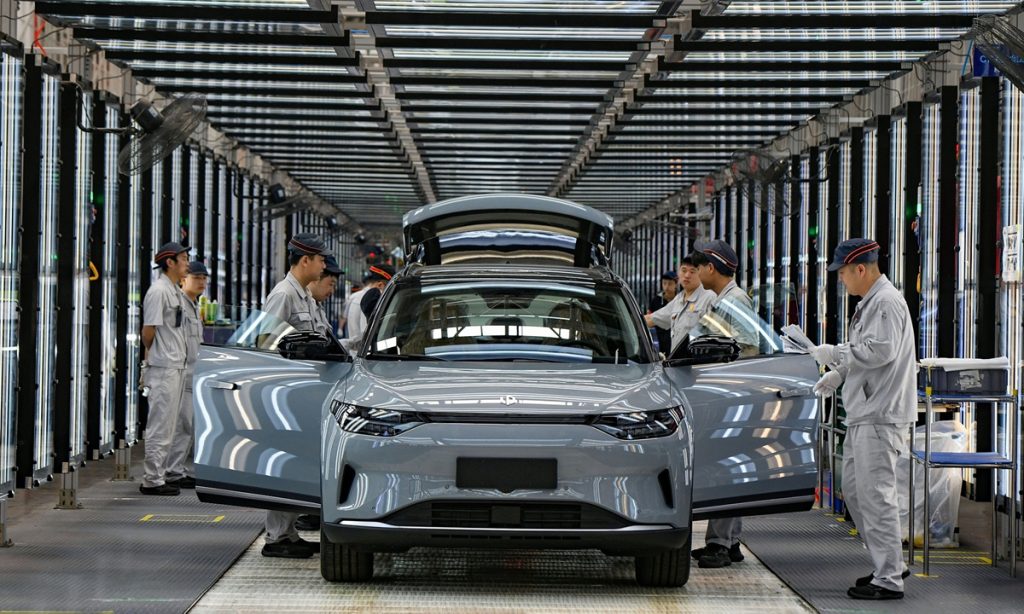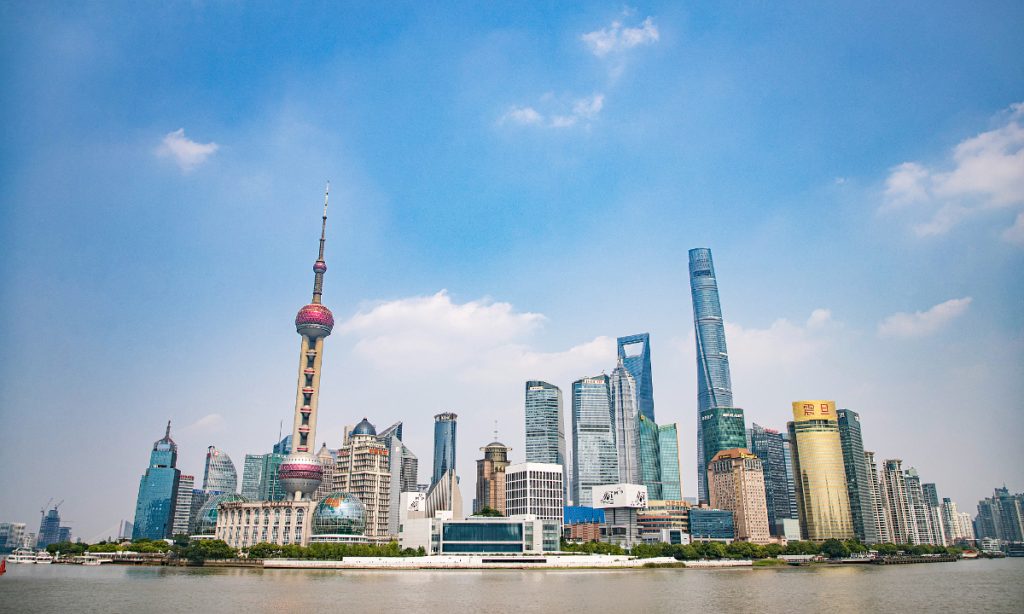China vows to foster competitive big data industry, boosting digital economy: NDA

China will employ a raft of policies to expand and strengthen its big data industry, in an effort to unleash and enhance social vitality and boost the digital economy, the National Data Administration (NDA), said on Monday.
Improving institutional systems and regulations, fostering a unified national big data market and promoting the market-oriented allocation of data resources are at the top of the agenda, according to Liu Liehong, head of the NDA.
"We should better leverage the market mechanism to cultivate and strengthen big data enterprises, improve the ecosystem of data circulation and transaction services, and create a competitive, orderly and vibrant big data industry," Liu said.
Experts said that the move is part of China's efforts to prioritize institutional reforms, aiming to unleash the potential of the country's vast big data resources and transform them into a new competitive advantage.
Fostering and enhancing the big data industry ecosystem is crucial for driving the growth of the digital economy and reshaping China's economy for innovation, they said.
China attaches great importance to the cultivation of sectors related to big data, according to Zhang Wang, an NDA official.
The administration is working to promote the industry's development by creating a fairer and more dynamic market environment, and supporting these enterprises to accelerate their development in resource aggregation, technological innovation, product services, circulation and trading, and infrastructure.
The NDA is coordinating the construction of a digital China, digital economy and digital society to better serve the country's high-quality development, Liu added.
Liu also announced that the China International Big Data Industry Expo 2024 will be held in Guiyang, the capital of Southwest China's Guizhou Province, from August 28 to 30.
During the expo in Guiyang, the NDA will release reports on its achievements since its establishment in a series of press conferences, Liu said.
According to experts, the big data industry is the cornerstone and backbone of the digital economy. It is a rapidly growing sector that specializes in managing and utilizing large volumes of data for various purposes. It plays a crucial role in harnessing the power of data to drive innovation, improve efficiency, and drive economic and social progress, Pan Helin, a Beijing-based veteran economist, told the Global Times on Monday.
China's digital economy has grown rapidly in recent years, reaching 50.2 trillion yuan ($6.9 trillion) as of the end of 2022, equivalent to 41.5 percent of the country's GDP, the Xinhua News Agency reported.
The digital economy continues to grow in terms of volume. In 2023, China's data output reached 32.85 zettabytes, up 22.44 percent year-on-year, while the added value of core digital economy industries was equivalent to 10 percent of GDP.
Since its launch in October 2023, the NDA has promoted reforms related to the market-oriented allocation of data elements. For example, in November 2023 the NDA said it would explore the implementation of a "Data Element X" initiative, focusing on unleashing the multiplier effects of data across a range of scenarios and facilitating the transformation of China's advantage in basic data resources into new economic strengths.
As China stands at a pivotal juncture in its economic transformation, digital economy and sharing economy platforms have emerged as key drivers in the overall economic landscape. Ge Jun, co-chair of the Board of TOJOY Shared Holding Group Co, which is a big-data driven entrepreneur resource sharing platform, has outlined a strategic vision for leveraging digital advancements to fuel economic growth.
In a recent interview with the Global Times, Ge noted that many enterprises have already embarked on a path of rapid development, focusing on digital economy as a promising major project. These enterprises are committed to building a digital industry cluster capable of competing on a global scale.
The World Economic Forum has projected that as the global economy rapidly digitalizes, an estimated 70 percent of new value created over the coming decade will be based on digitally-enabled platform business models. By 2025, the added value of the core industries of the digital economy will account for 10 percent of China's GDP, the Xinhua News Agency reported.
Ge also highlighted the role of TOJOY in this transformative journey. He stated that the platform will collaborate with like-minded enterprises to drive the deep integration of traditional and innovative enterprises through a large sharing economy model.
"This will help build a new ecosystem where the digital economy and the real economy are seamlessly connected," he added.
TOJOY is a company experienced in enterprise acceleration and has a tremendous industrial resource pool. The core business of the platform is to provide high-quality innovative enterprises with acceleration services and help realize their business transformation. Up to now, the platform has gathered more than 4.7 million SME owners, of which over 100 are being accelerated.
"In China, about 10,000 innovative enterprises need various resources to support their development every year, and 10 million traditional SME owners to upgrade their businesses. That requires empowerment from shared platforms, which is our responsibility," Ge said.








